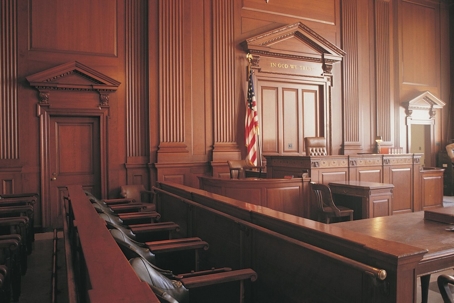In the U.S. military justice system, the purpose of a special court-martial is to address charges that are not severe enough to warrant a general court-martial but are too serious for a summary court-martial. These non-capital offenses are generally equivalent to a misdemeanor in the civilian justice system.
All classes of enlisted servicemembers are subject to trial by special court-martial.
What Is the Process?
The special court-martial process normally begins when an alleged violation of the Uniform Code of Military Justice (UCMJ) reaches the attention of military authorities – law enforcement, or command. Because this forum deals with misdemeanor-level offenses, it is not typically preceded by an Article 32 hearing, which is similar to a civilian pre-trial, indictment hearing.
Anyone facing a special court-martial is entitled to representation by an active duty military attorney, although they also have the option of hiring a courts-martial defense lawyer. A military judge presides over the proceedings, which also include, trial counsels who prosecute the alleged offense, and potentially a military panel as the “jury”. A special court martial is an Article I court created by Congress under their Constitutional powers. Thus, any conviction received by a special court martial is considered a federal conviction, which will carry direct and collateral consequences, such as jail time, and a criminal record.
Enlisted defendants, or accused, have the right to ask that at least one-third of the panel consist of enlisted personnel. Alternatively, they can request to be tried by a military judge alone.
The Rights of the Accused
Once the accused received a preferred charge sheet, the accused has the following rights at all times:
- To consult with an attorney
- To inspect and review all evidence in the case, such as documents and any physical evidence
- To know what they are charged with and the name of the accuser
- The names of government witnesses
- The name of the Summary Court-Martial Convening Authority (SCMCA) and the date their case is referred
- To present evidence on their own behalf and call witnesses to support their position
- To present motions
Once the proceedings begin, the following rights also apply:
- To plead guilty or not guilty
- To present testimony on their own behalf or to remain silent
- To cross-examine government witnesses
Being an intermediate-level proceeding in the military justice system, a special court-martial will take less time than a general court-martial. Most proceedings conclude in three to six months from the time the accused is served a charge sheet, where a general court martial may take six to nine months.
What Are the Potential Penalties?
Anyone found guilty in a special court-martial can be subjected to penalties that include:
- A maximum of twelve months confinement (cannot be applied to officers)
- Up to three months of hard labor without confinement
- Forfeiting two-thirds basic pay every month for twelve months
- Reduction to E-1
- A bad-conduct discharge (also cannot be applied to officers)
- Some lesser penalties
The prospect of being court-martialed can be frightening, and the consequences of a conviction can have a damaging effect on your military career and your life. If you or someone you love is under investigation or preparing for a special court-martial, contact the experienced and assertive defense team at Military Justice Attorneys. We have handled many complicated cases involving serious charges, and will give your matter the proactive and aggressive defense it deserves. Call us today at (843) 773-5501 for a consultation.
The post Understanding Special Courts-Martial appeared first on Military Justice Attorneys.

